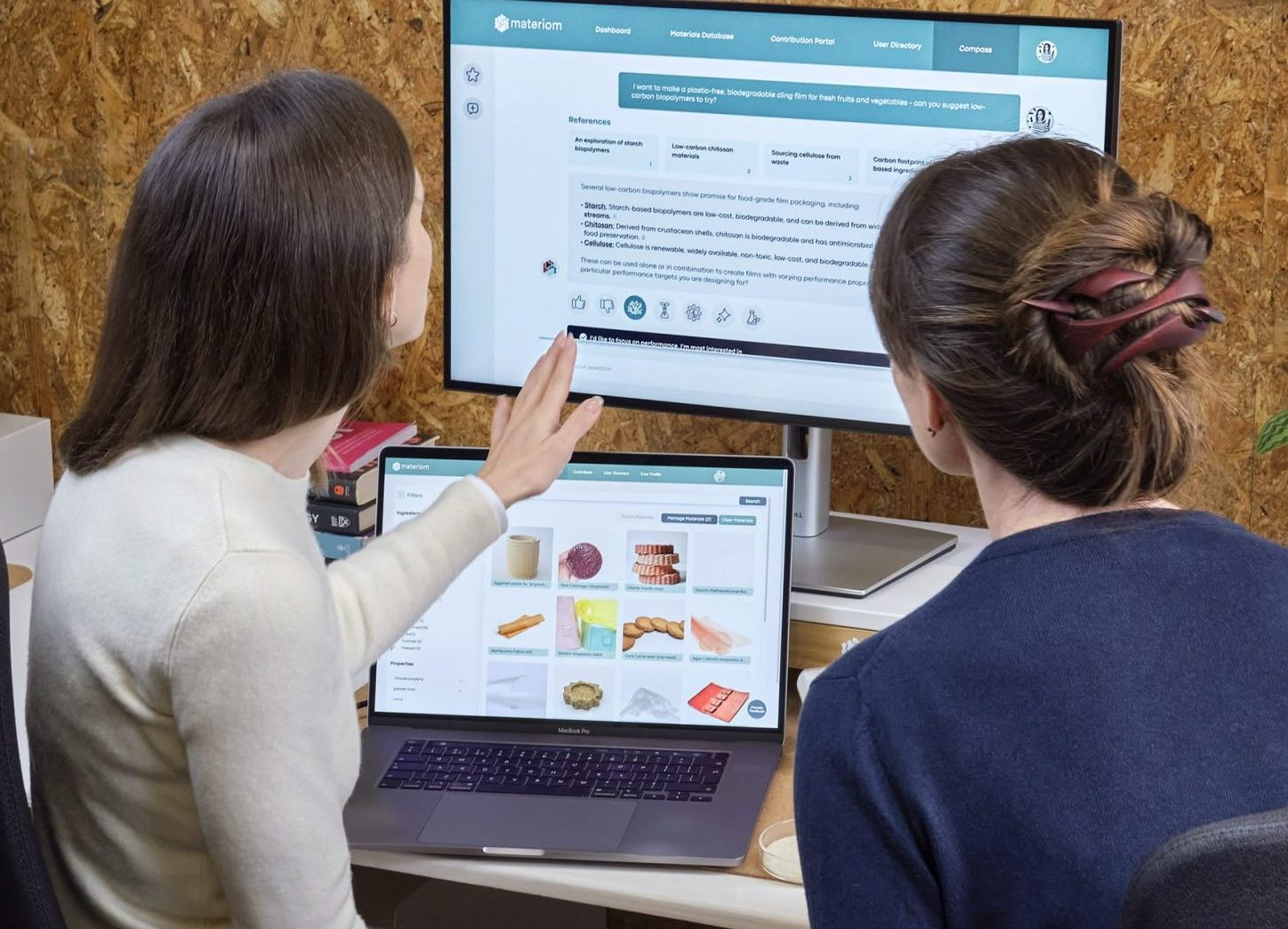Challenge
Puerto Williams relies heavily on the Chilean mainland for essential goods and resources like food and construction materials sent by sea or air. The island also lacks an effective post-consumer waste management strategy, straining local landfill capacity, with several informal micro-dumps reported on the island.
One of Puerto Williams’ leading commercial activities is the fishing and export of southern king crab, some of which are processed on the island for meat export – leaving a massive byproduct of crab shells which are dumped in local landfills and produce unpleasant odours for the community.
Materiom collaborated with Fab Lab Austral – one of the world’s southernmost digital fabrication laboratories – to explore circular solutions to some of these challenges.

Approach
Biomaterials production can provide opportunities for remote communities to use untapped organic by-products, access environmentally responsible materials while respecting local ecosystems, produce contextually appropriate products, and gain independence from traditional production chains. This project explored these opportunities through two work streams:
- Creating a bio-lab: Materiom supported Fab Lab Austral with the setup of a new biomaterials laboratory. This involved sourcing machines and tools and transferring technical biomaterials knowledge to the team and community through close co-working and structured community workshops.
- Exploring how to extract valuable biopolymers from crab shells: Together with the Fab Lab Austral team, we explored low-tech and DIY methods to extract chitin and calcium from king crab shells through fermentation with lactic acid from dairy. Both biopolymers are valuable resources for material fabrication:
- Chitin is a highly diverse natural polymer with excellent mechanical properties and low general solubility, making it a great option for films and composites.
- Calcium can be used as a mineral filler for materials, improving specific properties and decreasing the cost of production.
We defined clear steps for fermentation with tools that are now part of the new bio-lab, and created a range of chitin-based composites for their library.

Outcomes
Biomaterials production has the potential to support more distributed – and therefore resilient – production models globally, drawing on local resources and knowledge. Working with Fab Lab Austral and the Puerto Williams community on this project led to the consolidation and amplification of local biomaterials knowledge, development of a new bio-lab, and a biomaterials library.
The new bio-lab enables Fab Lab Austral to keep developing local biomaterials applications like packaging, crockery and accessories. They continue to transfer knowledge through workshops with the community and raising awareness of the environmental impacts of plastic pollution.
Further research is needed to develop a quicker and more efficient method for extracting chitin from crab shells. However, it is a valuable starting point for further research in Puerto Williams and other localities with crustacean by-products. In Materiom’s Galapagos project, we are exploring a similar approach using lobster shells and other inedible food waste to develop local materials.

Partners
FabLab Austral, FONDART (Fondo Nacional de Desarrollo Cultural y las Artes), CNCA (Consejo Nacional de la Cultura y las Artes – Chilean Government)
Learn more
View the project report [in Spanish] here.





